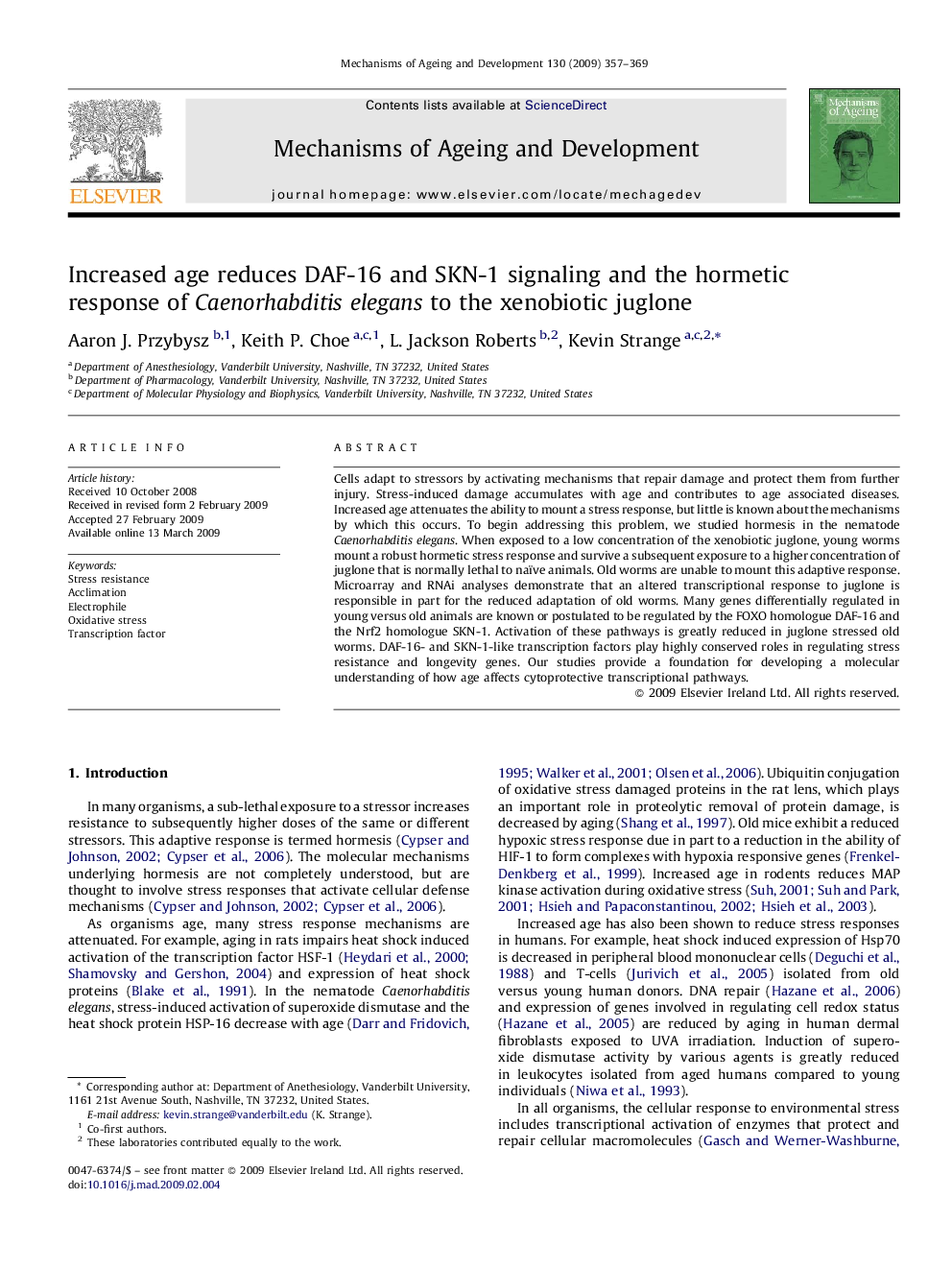| کد مقاله | کد نشریه | سال انتشار | مقاله انگلیسی | نسخه تمام متن |
|---|---|---|---|---|
| 1919442 | 1535655 | 2009 | 13 صفحه PDF | دانلود رایگان |

Cells adapt to stressors by activating mechanisms that repair damage and protect them from further injury. Stress-induced damage accumulates with age and contributes to age associated diseases. Increased age attenuates the ability to mount a stress response, but little is known about the mechanisms by which this occurs. To begin addressing this problem, we studied hormesis in the nematode Caenorhabditis elegans. When exposed to a low concentration of the xenobiotic juglone, young worms mount a robust hormetic stress response and survive a subsequent exposure to a higher concentration of juglone that is normally lethal to naïve animals. Old worms are unable to mount this adaptive response. Microarray and RNAi analyses demonstrate that an altered transcriptional response to juglone is responsible in part for the reduced adaptation of old worms. Many genes differentially regulated in young versus old animals are known or postulated to be regulated by the FOXO homologue DAF-16 and the Nrf2 homologue SKN-1. Activation of these pathways is greatly reduced in juglone stressed old worms. DAF-16- and SKN-1-like transcription factors play highly conserved roles in regulating stress resistance and longevity genes. Our studies provide a foundation for developing a molecular understanding of how age affects cytoprotective transcriptional pathways.
Journal: Mechanisms of Ageing and Development - Volume 130, Issue 6, June 2009, Pages 357–369